Frost Chopin Festival
 Frederic Chopin composed many different kinds of music, almost all of it exclusively for the piano. His waltzes, mazurkas and polonaises reflect his Polish birthplace and convey the spirit and excitement of dancing. His etudes demonstrate just how to make shimmering sounds. His nocturnes evoke dreams of love (and a few night terrors). Scherzos and Ballades challenge pianists’ technique and emotional understanding. At the Frost School of Music’s first annual Chopin Festival, June 24 – 30, a full range of Chopin’s music made my spirit dance, dream, and fall in love all over again.
Frederic Chopin composed many different kinds of music, almost all of it exclusively for the piano. His waltzes, mazurkas and polonaises reflect his Polish birthplace and convey the spirit and excitement of dancing. His etudes demonstrate just how to make shimmering sounds. His nocturnes evoke dreams of love (and a few night terrors). Scherzos and Ballades challenge pianists’ technique and emotional understanding. At the Frost School of Music’s first annual Chopin Festival, June 24 – 30, a full range of Chopin’s music made my spirit dance, dream, and fall in love all over again.
Though I live an hour and a half north of the University of Miami in Coral Gables, I was able to stay in David and Leslie’s casita just minutes away. All I had to do was play with my 4-year-old grand daughters, Margot and Nina, each day and be ready for a concert each night. The Maurice Gusman Concert Hall was a welcoming, if chilly, place and I soon connected with other Chopin lovers. On Tuesday evening Leslie went with me to hear Chopin’s 24 Preludes played by Katarzyna Popowa-Zydron, a piano professor from Poland, and four Chopin Polonaises performed by Margarita Shevchenko, a Russian-born pianist now at Michigan State University. As a special treat we got to hear 17-year-old Kimberly Han from Chicago play Chopin’s “Funeral March” Sonata before she departed for a gig in Switzerland. Wow! We felt drenched in superbly played Romantic music.
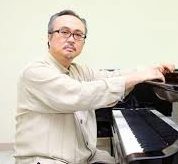
The first recital on Sunday evening put Chopin in perspective by beginning with works by Franz Schubert (1797-1828), who preceded him, and concluding with works composed after his death by Franz Liszt (1811-1886) and Ignacy Jan Paderewski (1860-1941). My mother once heard Paderewski play and I have Paderewski’s editions of Chopin’s Preludes, Nocturnes, and Polonaises. Works by Chopin (1810-1849) were the centerpiece of this first recital: Barcarolle in F-sharp major, Three Mazurkas, and Scherzo No. 2 in B-flat minor (which I played on my Master’s Recital at Catholic University). The terrific artist on stage was Dang Thai Son.
Dang was born in Hanoi in 1958, taught piano by his mother, discovered by Russian pianist Isaac Katz in 1974, and enrolled at the Moscow Conservatory. In 1980 he won the grand prize of the International Chopin Competition in Warsaw (held every five years). He is now a Canadian citizen and will join the faculty at Oberlin this fall. Never had I heard the Scherzo, which I know well, played so beautifully.

Monday’s concert by Shelly Berg was a revelation–that someone could improvise just like Chopin. Well, Shelly Berg could, and did so beautifully. He started with Chopin’s melodies and harmonic progressions and infused old standards with fresh emotions, reminding me of Arash Safaian’s ÜberBach that I heard in March at the Savannah Music Festival. Berg is Dean of the Frost School and insists that all students learn something about improvisation, a vital part of musicianship and one of my weaknesses.
Kevin Kenner, a piano professor at the Frost School was responsible for organizing the festival in partnership with the Chopin Foundation of the US, which was founded in Miami in 1977. During the Festival week twenty young pianists, selected from around the world, participated in an Academy devoted to the music of Chopin and benefitted from the tutelage of the visiting artists. Dr. Frank Cooper contributed witty, insightful commentary before each recital. Though I missed the concert Kenner presented with violinist Kyung Wha Chung on Thursday night, I appreciated all the work I knew he had done, including arranging for this lovely stage setting. Before arriving for the first concert on Sunday, I had just watched Poland lose to Colombia in a World Cup game, so it was good to see their colors restored beneath a bust of Chopin.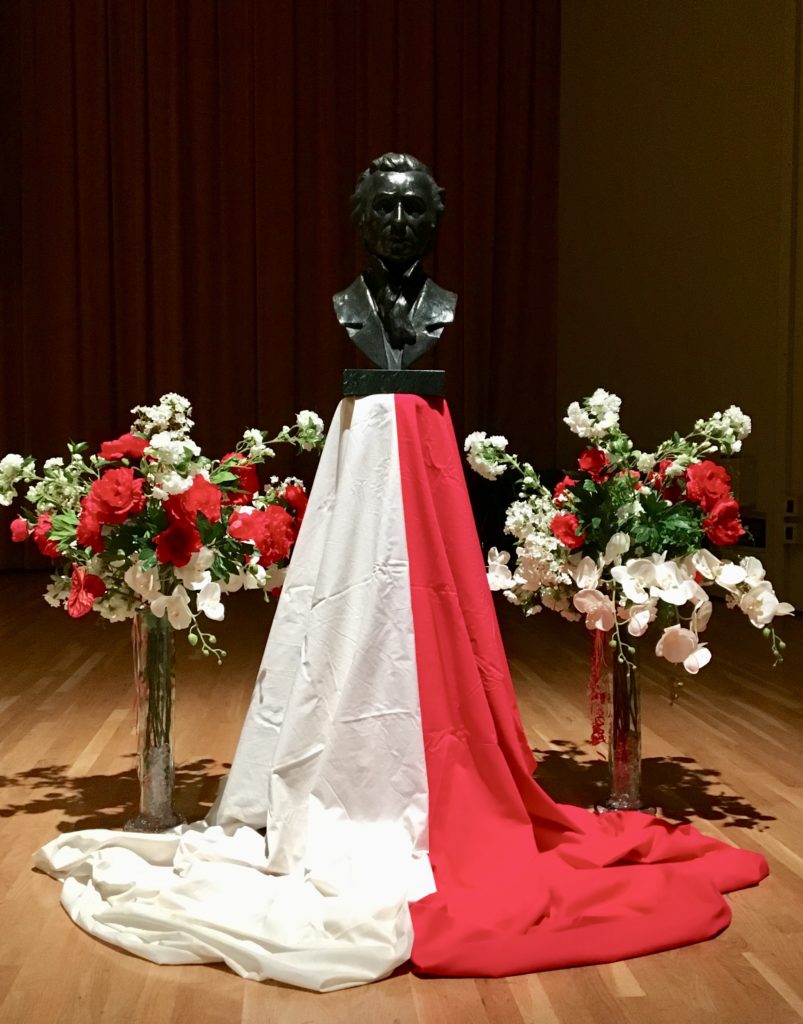
Steve and I returned on Friday and Saturday evenings to hear several students selected from the Academy perform virtuoso pieces. On Saturday four of them took turns presenting movements of Chopin’s two piano concertos, accompanied by the Amernet String Quintet. They were simply dazzling!
Preceding those performances were lectures by Dr. Alan Walker, an English-Canadian musicologist. I had read and admired his three-volume biography of Liszt in graduate school and am looking forward to his forthcoming Fryderyk Chopin: A Life and Times, due out in October. Steve and I enjoyed his account of the rain-soaked, three-month vacation-from-hell that Chopin and his lover, George Sand, had in Majorca in 1838. Though ill with tuberculosis, Chopin somehow managed to finish his 24 Preludes there. I got to chat with Dr. Walker briefly and he told me he had known Thomas Mastroianni, my teacher at Catholic University. I had assisted Mastroianni in hosting a Liszt Festival in DC in 1993.
Walker identified Chopin’s Berceuse, Op. 57 as a perfect exemplar of Chopin’s genius: “This lullaby has color, nuance and colossal force, all arrayed over just two chords in 70 measures.” I studied that piece in high school and remember trying, in vain, to put my babies to sleep with it. This Festival has inspired me to review old favorites, practice more, and listen more. Here is Arthur Rubinstein playing the Berceuse:
While the students in the Academy were studying and practicing every day, Mabell and I took our granddaughters for swimming lessons at UM and crafts at the Coral Gables Library. Now that I know about the recitals the Chopin Foundation holds throughout the year at Granada Presbyterian Church, I hope to come down often, perhaps inspiring them to take piano lessons someday.
June 27, 2019: The second annual Chopin Festival is underway this week at the Frost School of Music, University of Miami. On Tuesday I drove to Coral Gables and spent three hours with Margot and Nina at their beautiful neighborhood swimming hole.
The concert that evening at the Frost School was a Showcase of student musicians playing works by Chopin. The most compelling was Parker van Ostrand of Sacramento CA. He played the Andante Spianato and Grande Polonaise Brilliant, Opus 22, with imagination and finesse well beyond his 16 years. By intermission I had made friends with the couple sitting by me and we had a chance to chat with Parker and his mother. I asked him what he likes best about playing the piano; he replied “experimenting with different interpretations.” He has already performed with several orchestras. Later his mother told us that he almost has a bachelor’s degree in mathematics and is considering a double major in math and music at MIT. He is also being recruited by the Curtis Institute in Philadelphia. Impressive for an incoming junior in high school!
Before Nadia Azzi played Chopin’s Sonata No. 2 in B-flat minor, Op. 35, with its famous funeral march, Kevin Kenner, noted that the family of Chopin’s financée had just broken their engagement and that one can hear his feelings in this piece. I certainly did! I must return to reading Alan Walker’s book, referenced above, to learn more. To conclude the program, Ziyao “Chelsea” Guo, played the first twelve of Chopin’s 24 Preludes. I knew many of those and appreciated her skill and artistry.
On Wednesday, Mabell and I took the girls to Fairchild Gardens, where we found few tourists, bountiful butterflies, gorgeous flowers, and a raccoon.
That evening’s concert presented four selected student participants in both Chopin Concertos, accompanied by the Escher Quartet in an arrangement by Kevin Kenner. Number Two in F minor captured my devoted attention from beginning to end I loved the intimacy of the chamber setting and the considerable skill of Piotr Pawlak from Poland and Chelsea Guo. Number One in E minor came after the intermission and was gorgeous, but somewhat less exciting. Even though I knew I had a 75-minute drive home, I stayed and listened and enjoyed LIVE music, beautifully played. Wish I could stay for the entire festival, but we’re off to Chautauqua on Saturday. Next year, I’ll attend more.
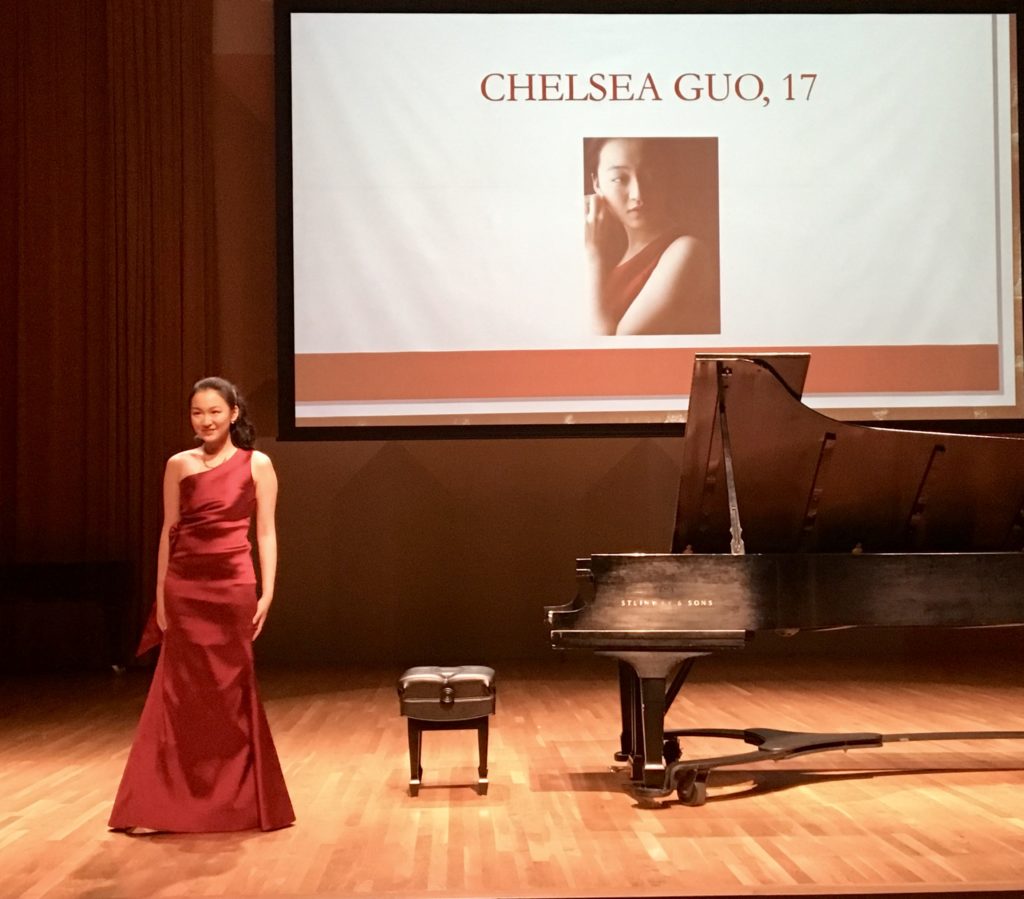
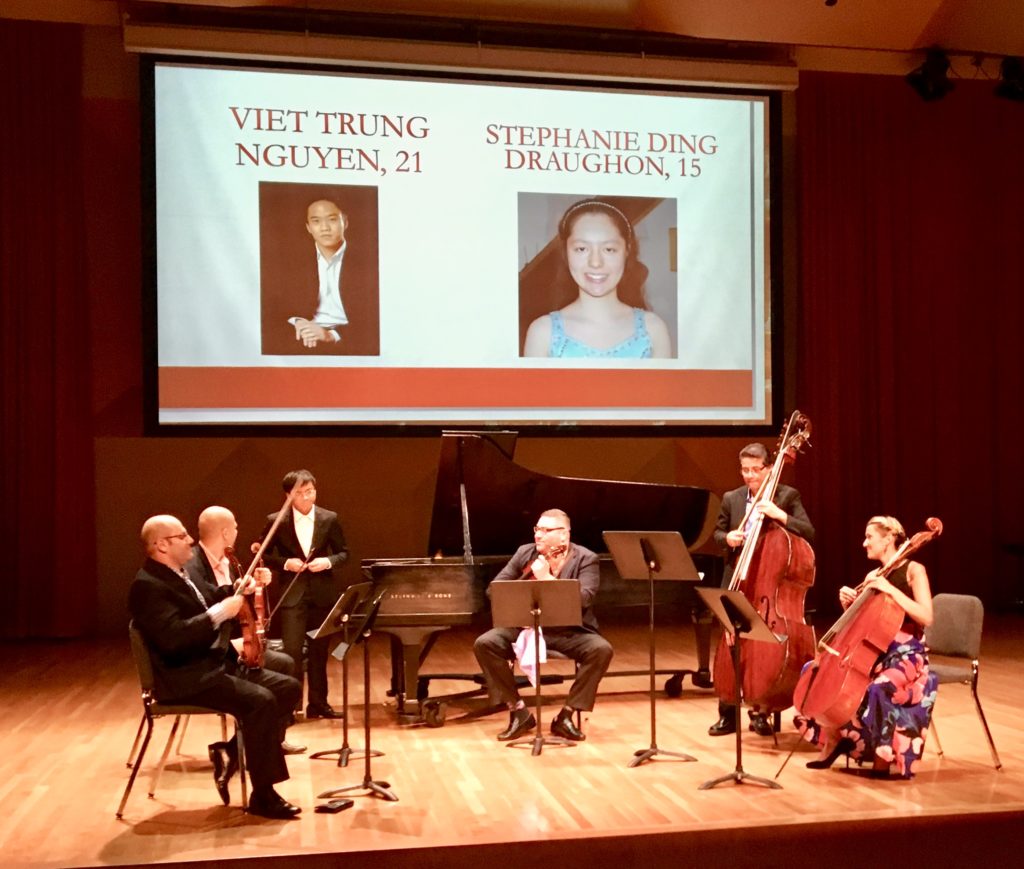

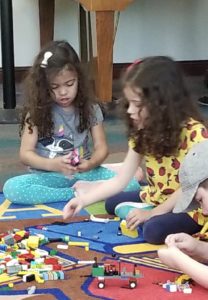
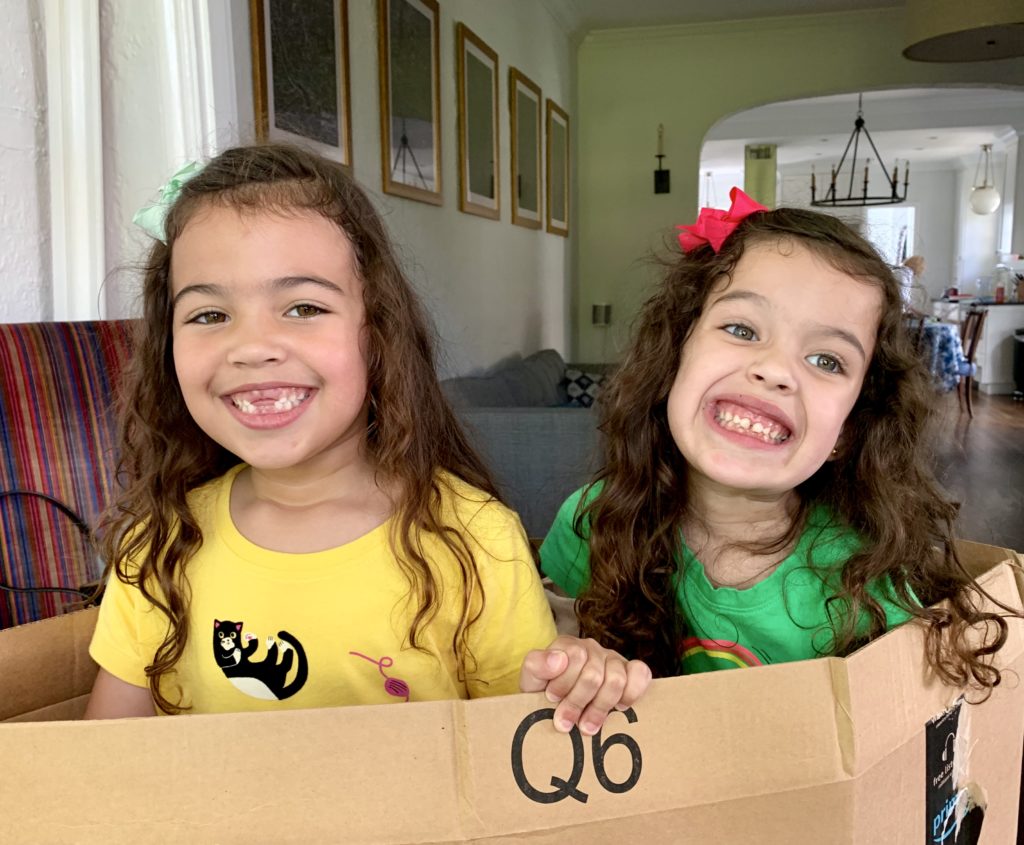
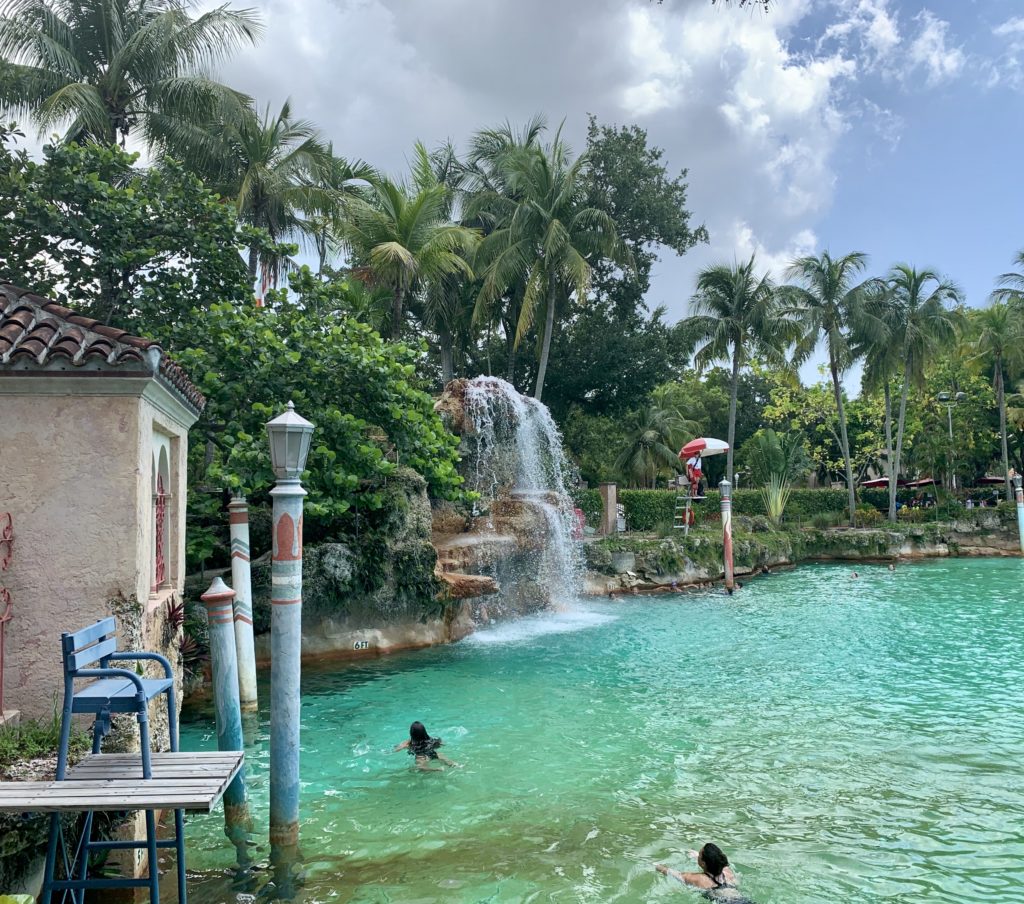
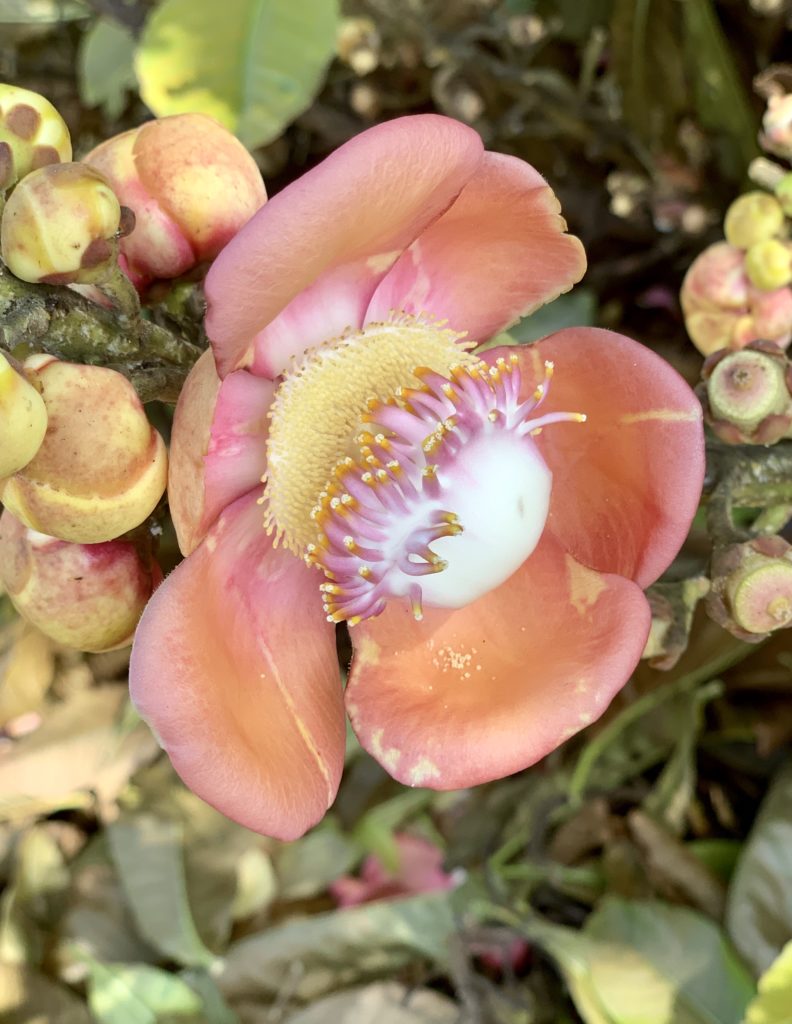
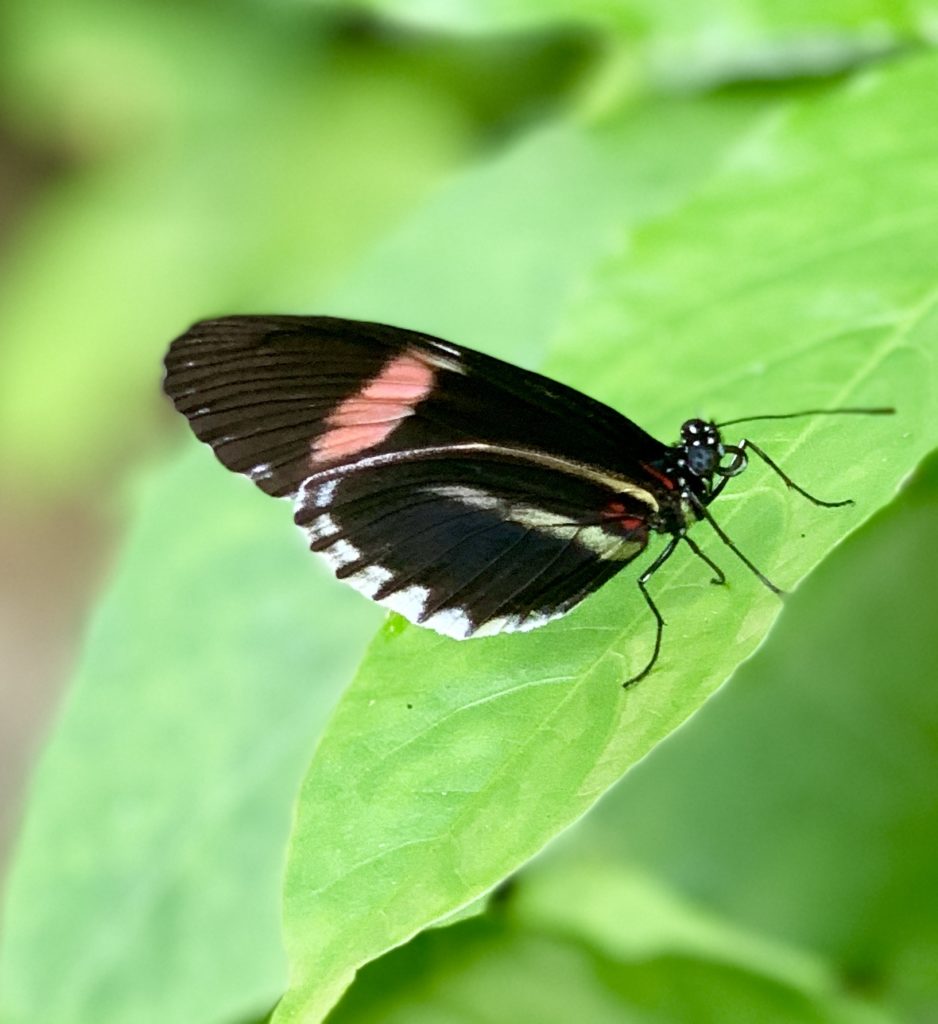


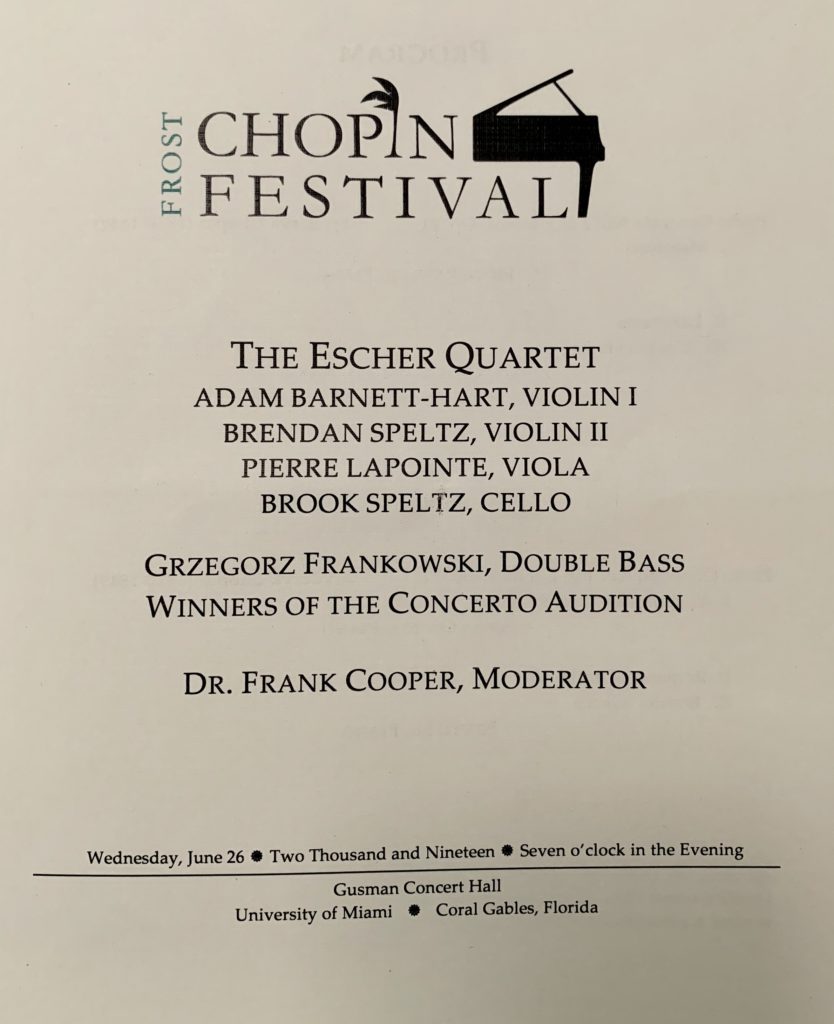
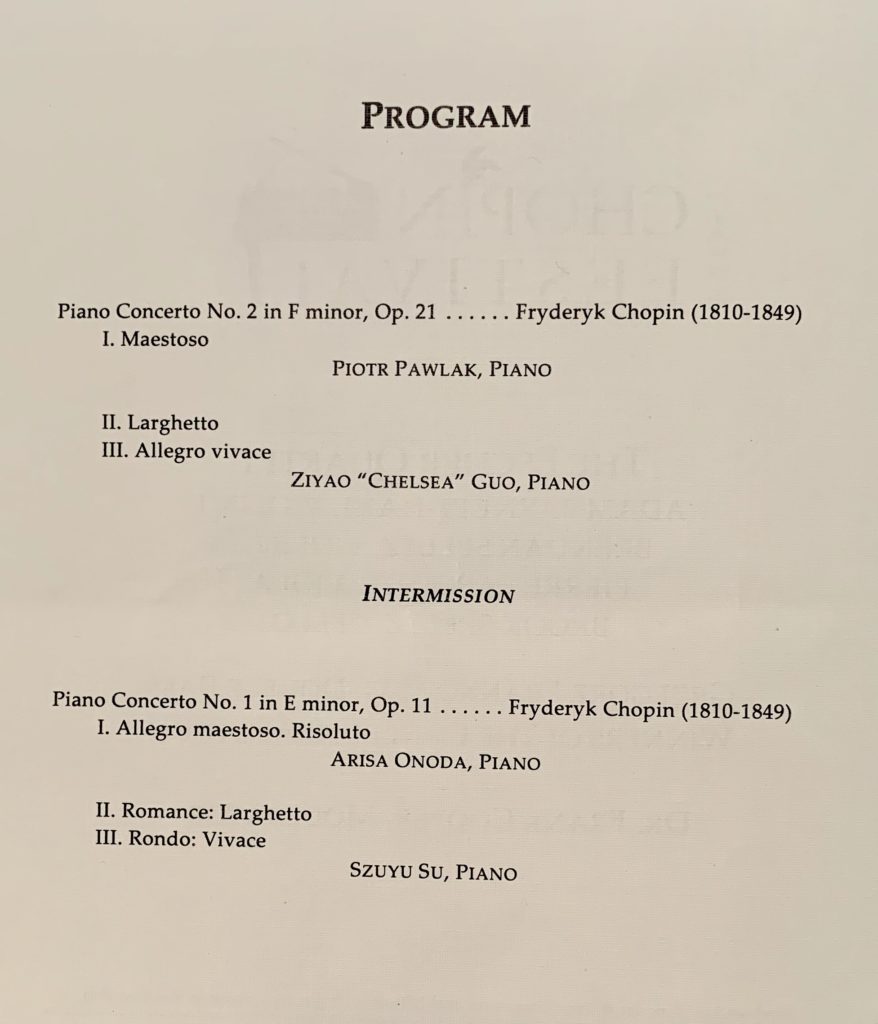
Leave a Reply